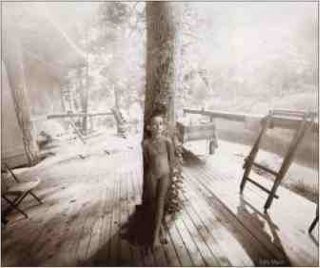Andrea.RL
Active Member
- Joined
- Aug 25, 2008
- Messages
- 1,872
- Reaction score
- 7
Sally mann's daughter. She is an artist, model.
What follows comes from this site: subjectify.blogspot.com
What follows comes from this site: subjectify.blogspot.com
Subjectify: You wrote in Aperture that people often come up to you and say “You don’t know me, but I know you” and that you take their words as true—they do know you. What do they know?
Jessie Mann: I think the conceptual issue exemplified by this anecdote might just be the most difficult of the questions raised by my life experience, and by extension, Self Possessed (my collaborative photography project with Len Prince—which examines the role of the subject in art). The ways in which perception and documentation alter the self, as well as consideration for the nature and seat of that self, are concepts which are examined through our collaboration and implicated in this statement I hear so often. By exploring what of my ‘self’ is contained in my abstract, or symbolic form, I am challenging where the “I” traditionally exists. When strangers claim to know me—I have to ponder what they know and who I am. Do I exist in my inner monologue alone?
Where do we most fully exist? Which self—external or internal—is more valid? Are we living in our heads—our own thought is all we have to be certain of? Or is reality, the rocks we stub our toes on, as opposed to the pain we feel, where our self is of greatest substance and meaning? Does the external world of other’s thoughts (collective thought, thought as an abstract) ground us in a subjective nature? When I say it is true they know me, I mean it, I have come to grant that abstract self possession of an “I”ness.
Having run up against the external self others have created for me, I have spent a lot of time considering the nature of the self—internal, social/biological, and symbolic. Yet, as I have said, this is something everyone has to deal with. We are all, and have always been, addressing the nature of ourselves.
When people approach me with that statement they are simply telling me their truth—they know a Jessie Mann, who corresponds in some way to my physical presence, and I know of no version of them. Now, one could say (and I did at one time say myself) they don’t really know ME, though. But how can I so confidently say that, maybe the abstract version of myself is the more real me; the self more imbued with life than the self resting in my deep inner dialog. How do I determine where “I” really am?
Possibly because I had to confront it so much, I began to let go of [my] automatic response, wherein I protect an entirely personal, primary and self contained self. I began to consider what exactly it was these strangers were telling me. I mean, they seemed sincere, they were telling me a truth from their perspective. Could what they say to me be more true than my instinctual mental negation—‘they don’t really know me’?
They do know me. They know a me I might not even know, but it may in fact be the me which stores my ‘self’ most certainly. My private self is fleeting but deep, my social self has a longer duration and is more interactive, so to speak, but my symbolic self gains the attributes of the symbol—its is translatable, it is multifunctional—as it is abstract and can thus be applied to a variety of specific concepts, and it is autopoetic.
When people believe that they know me, when people do, in fact, engage in knowing me through their mental experience of a photograph—some part of my nature (maybe not that part which is most deep in me, but a part which is active, nonetheless) was transmitted to them through a work of art, and one must, to be fair, at least consider that art, therefore, works. Yay.
Attachments
Last edited by a moderator:












